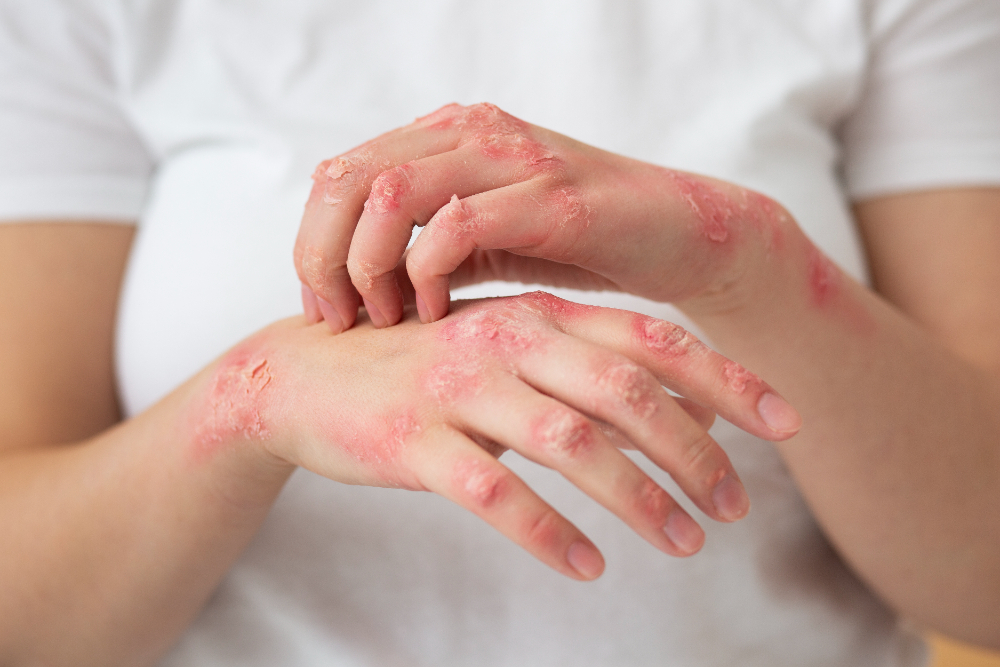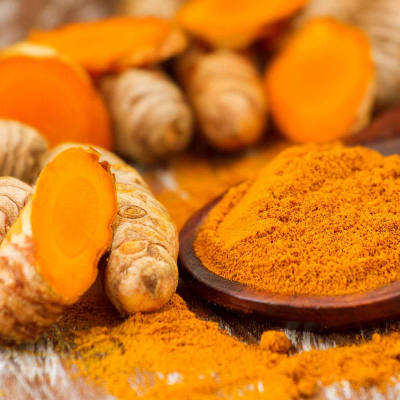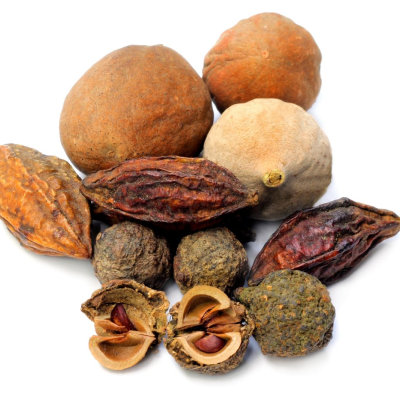- +033 2572 7171
- info@dhanvantary.com

4.5 Rating | 4500 Review

4.5 Rating | 4500 Review
Eczema, also known as dermatitis, is a chronic skin condition characterized by inflammation, redness, itching, and dryness of the skin. It may also involve oozing, crusting, or thickened skin in severe cases. It is a non-contagious condition and can occur at any age.

Common in children; dry, itchy, and inflamed skin, often seen on the face, elbows, and knees. It may flare up periodically.
Associated conditions: Allergies, hay fever, asthma.
Localized reaction to irritants (e.g., soaps, detergents) or allergens (e.g., nickel, cosmetics). Causes redness, burning, or blistering.
Small, itchy, fluid-filled blisters on the hands and feet, often worsened by stress or exposure to water.
Coin-shaped spots of dry, scaly, itchy skin, often triggered by dry weather or skin injury.
Scaly patches, redness, and dandruff, commonly seen on the scalp, face, or chest. Often linked to oily skin or yeast overgrowth.
Occurs on the lower legs due to poor circulation, leading to swelling, redness, and skin discoloration.
Thick, scaly patches of skin caused by repetitive scratching, often triggered by stress.
A family history of eczema, asthma, or allergies increases susceptibility.
An overactive immune response to irritants or allergens.
Emotional or physical stress can trigger or worsen eczema.
Poor skin care, frequent exposure to water, or excessive use of cosmetics.
Itchy, red, and inflamed skin.
Dryness, cracking, or scaling.
Blisters or oozing in severe cases.
Thickened or leathery skin due to chronic scratching.
Discoloration, sensitivity, or irritation from scratching.
In Ayurveda, eczema is referred to as Vicharchika, a type of Kushtha (skin disease). It results from an imbalance of the three doshas—Vata, Pitta, and Kapha—with Pitta and Kapha being predominantly involved.

Blood purifier and anti-inflammatory.

Detoxifies blood and reduces itching.

Treats skin conditions and allergies.
Strengthens immunity and rejuvenates skin.
Includes therapies like Virechana (purgation) and Raktamokshana (bloodletting).
